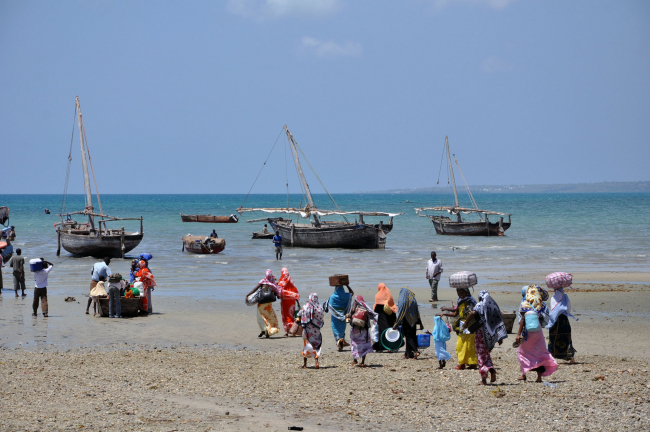06/02/2024 | In a new study, Dr. Stefan Partelow and other authors highlight the relevance of social sciences for marine-related projects that focus on sustainability. In our "Research in Brief" series, the lead author explains the results of the study and highlights the five areas of intervention in which social science can have the greatest impact in avoiding harms and improving benefits of projects.
What was the initial question of the study?
Stefan Partelow: How can social science help avoid the harms and improve the benefits of ocean sustainability initiatives in research, development, policy and funding?
What was the procedure for the study?
Stefan Partelow: We searched the scientific literature for relevant social science articles and also interviewed experts.
What are the new findings?
Stefan Partelow: Social science only contributes ~7% of all the known publications in marine science. This is very low, and suggests that if science is being used to design and implement ocean sustainability projects (e.g., with regard to MPAs, coastal development, or fisheries policy) it is likely not based on rigorous social science despite the impacts of such projects on people and social governance, cultural and economic systems. However, the social sciences contribute the highest percentage of sustainability-oriented publications compared to any other discipline.
Building on this, we review the literature on social science contributions to ocean sustainability, and identify five intervention areas where we believe social science can be most impactful in avoiding harms and improving benefits of projects. The five areas are: (1) Using ethics to guide decision-making, (2) Improving governance, (3) Aligning human behavior with goals and values, (4) Addressing impacts on people, and (5) Building transdisciplinary partnerships and co-producing sustainability transformation pathways.
What conclusions can be drawn from this?
Stefan Partelow: Early integration of social knowledge from the five areas during intention setting and design phases of projects offers the deepest potential for delivering benefits. Later stage collaborations can leverage opportunities in existing projects to reflect and learn while improving impact assessments, transparency and reporting for future activities.
Inter-and transdisciplinary research that integrates knowledge across different scientific disciplines and perspectives is more likely to avoid harms and improve the benefits for both people and nature, especially when projects take local social and ecological knowledge into account.
Why are the results relevant for society?
Stefan Partelow: As the Blue Economy continues to expand worldwide, projects for the protection and sustainable use of the oceans that impact people and nature will certainly continue with good intentions. However, positive social impacts and benefits are not self-evident or inevitable features of these projects, even if they intend to do so. Working directly with social science specialists by hiring, consulting, or enabling the capacity of teams across public, private sector, and non-governmental organizations is vital.
The greatest benefits are expected where insights can be integrated early into the design phase. Furthermore, inclusion of social scientists into ocean assessment and monitoring processes can make important contributions towards recognizing social vulnerability and impacts, as well as help shape agendas, flag issues and provide strategic guidance based on new or existing social knowledge.
How do your research results contribute to addressing the major current environmental problems of the oceans?
Stefan Partelow: People cause environmental problems for other people and themselves. However, understanding the behaviour, motivations and social systems of people in different places is often not intuitive or easy. Ocean sustainability initiatives cannot be based on intuitions and assumptions about people’s behaviour and social systems – or neglect them entirely - if they aim to actually be effective and impactful, or at a minimum avoid harms.
Our review shows how the contributions of empirical and theoretical social science can substantially improve outcomes for both people and nature, and the investments into collaborating with marine social scientists and embracing the value of social science knowledge is critical for improving the viability, desirability and feasibility of ocean sustainability initiatives.
Publication
Partelow, S., Schlüter, A., Ban, N. C., Batterbury, S., Bavinck, M., Bennett, N. J., Bleischwitz, R., Blythe, J., Bogusz, T., Breckwoldt, A., Cinner, J. E., Glaser, M., Govan, H., Gruby, R., Hatje, V., Hornidge, A.-K., Hovelsrud, G. K., Kittinger, J. N., Kluger, L. C., … Villasante, S. (2023). Five social science intervention areas for ocean sustainability initiatives. Npj Ocean Sustainability, 2(1), 24. https://doi.org/10.1038/s44183-023-00032-8





